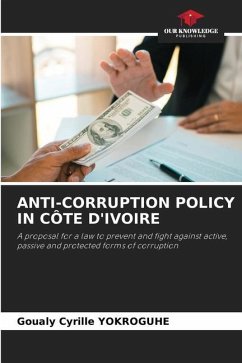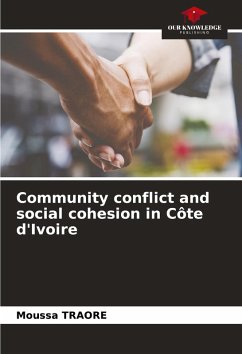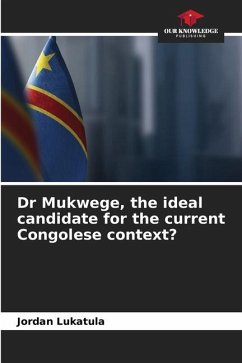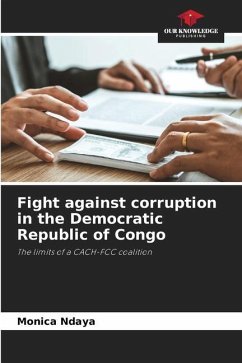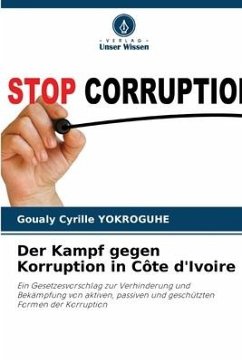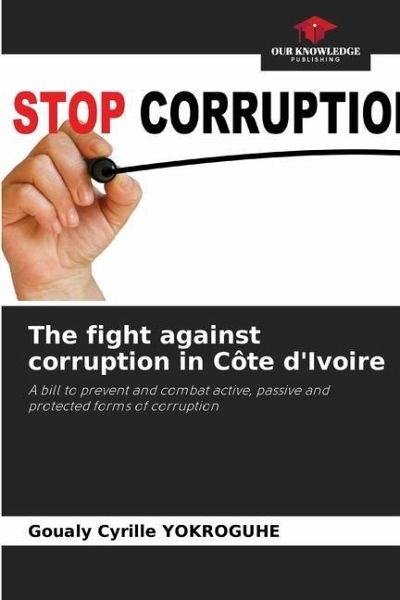
The fight against corruption in Côte d'Ivoire
A bill to prevent and combat active, passive and protected forms of corruption
Versandkostenfrei!
Versandfertig in 6-10 Tagen
53,99 €
inkl. MwSt.

PAYBACK Punkte
27 °P sammeln!
In Côte d'Ivoire, corruption persists strongly in the management of public affairs, despite a number of measures taken by the State to effectively combat this social phenomenon. To understand this paradox, an analysis of current anti-corruption legislation in Côte d'Ivoire was carried out. It revealed ten (10) major sociological weaknesses, which mean that it reinforces the capacity to resist corruption rather than considerably weakening it. With a view to increasing the effectiveness of the fight against corruption in Côte d'Ivoire, the author has highlighted these ten (10) sociological we...
In Côte d'Ivoire, corruption persists strongly in the management of public affairs, despite a number of measures taken by the State to effectively combat this social phenomenon. To understand this paradox, an analysis of current anti-corruption legislation in Côte d'Ivoire was carried out. It revealed ten (10) major sociological weaknesses, which mean that it reinforces the capacity to resist corruption rather than considerably weakening it. With a view to increasing the effectiveness of the fight against corruption in Côte d'Ivoire, the author has highlighted these ten (10) sociological weaknesses. On the basis of these data, he has drafted a bill to prevent and combat active, passive and protected forms of corruption. This proposed law is followed by a test to operationalize it, in order to measure its effectiveness on the behavior of the actor in relation to his capacity:-to make a bribe ;-to accept a bribe; and-and to remain silent about a corrupt act involving him.




